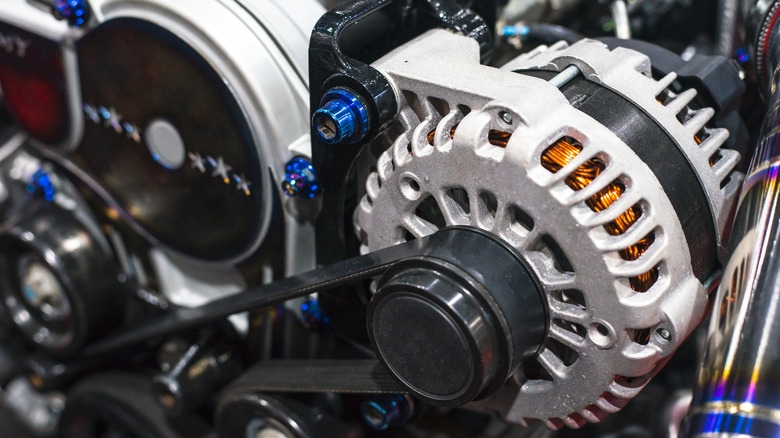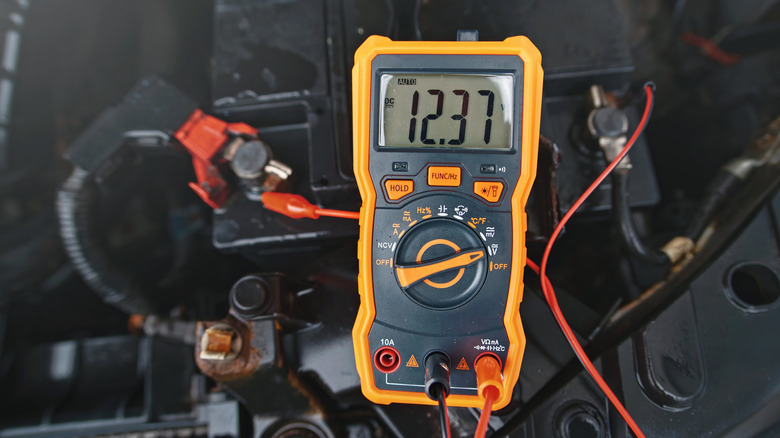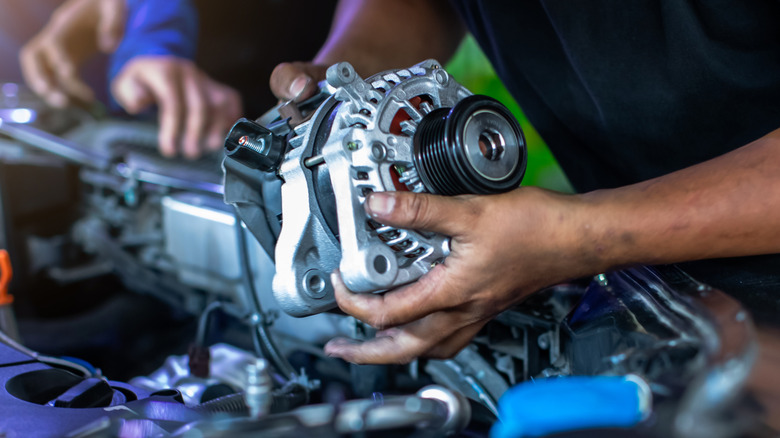How Long Alternators Typically Last (And Tips To Extend Their Lifespan)
The alternator in your vehicle is not a disposable item like the engine oil, automatic transmission fluid (ATF), or radiator coolant. The average lifespan of an alternator is around 80,000 to 150,000 miles or seven to 10 years. The alternator can go beyond 200,000 miles in some vehicles, but its longevity depends on many factors. While the make and model of the car and alternator are important, exposure to extreme heat or cold and frequent short trips may shorten your alternator's lifespan. Prolonged vehicle storage and poor battery maintenance can also strain the alternator unnecessarily.
You better pray a garage or open auto parts store is nearby when your alternator fails. Among the first signs of this kind of trouble is an illuminated battery light on your dashboard. The alternator is essentially the beating heart of a vehicle's electrical system, recharging the 12V battery and powering the electrical components. That doesn't just mean lights, radio, power windows, and the like. When the alternator conks out and the battery runs completely dry of juice, the fuel pump will shut down and the spark plugs will stop firing, shutting down the engine. This is not a fun experience when you're on the freeway in rush hour traffic or a deserted country road late at night.
Symptoms of a failing alternator
The alternator converts mechanical energy into electricity. The good news is that some alternators can last the vehicle's life owing to their robust metal construction. The bad news is that isn't always the case. Parts like the bearings, brushes, rotor, stator rectifier, or regulator wear out and need replacing. In addition, corroded electrical connectors can sometimes short the alternator and cause dead battery issues.
Faint whining sounds emanating from the alternator while the engine is running or a burning smell may mean the alternator or its related components are failing. If other symptoms like an illuminated battery light and dim headlights or interior lights are present, your risk of getting stranded increases. If you have a voltmeter that plugs into the cigarette socket or a multimeter, a failing alternator will display erratic readings, sometimes rising as high as 15V or 17V before falling to below 10V. At that point, the engine will turn off, and you won't be able to restart it again.
How to extend an alternator's lifespan
Since replacing your engine's alternator can cost $100 to $500 or more in parts and around $300 to $800 in labor, there are things you can do to make it last. Where the alternator sits in the engine bay is a huge factor, so keeping the splash guards in place will protect it from puddles, rocks, and debris, especially if it sits near the bottom of the engine. It's why covering all sensitive electrical parts with a plastic bag before cleaning your engine bay is a good idea, since water and electricity don't mix. The same is true for the alternator. Keeping it relatively dry will help it last longer.
Meanwhile, reducing the electrical load will reduce the strain on the alternator. Turn off unnecessary electrical or power-hungry items like heated seats, and reduce the volume of your aftermarket audio system when the car is idling to reduce the load on the alternator. Keeping the belt at the proper tension (about 1/2 inch of deflection at its longest run) will help ensure the pulleys and bearings last a long time. If your battery terminals need cleaning or are loose, this forces the alternator to work harder than usual.


